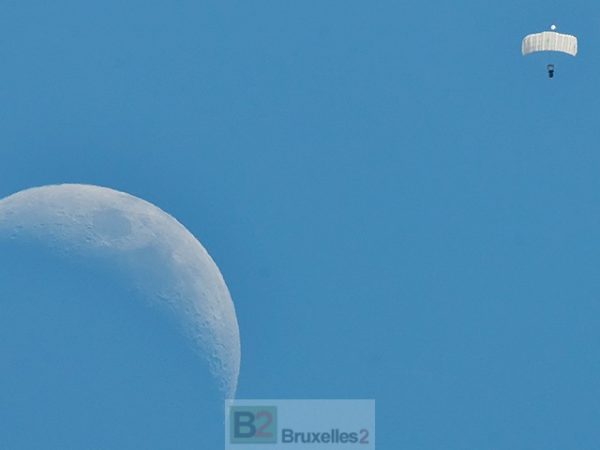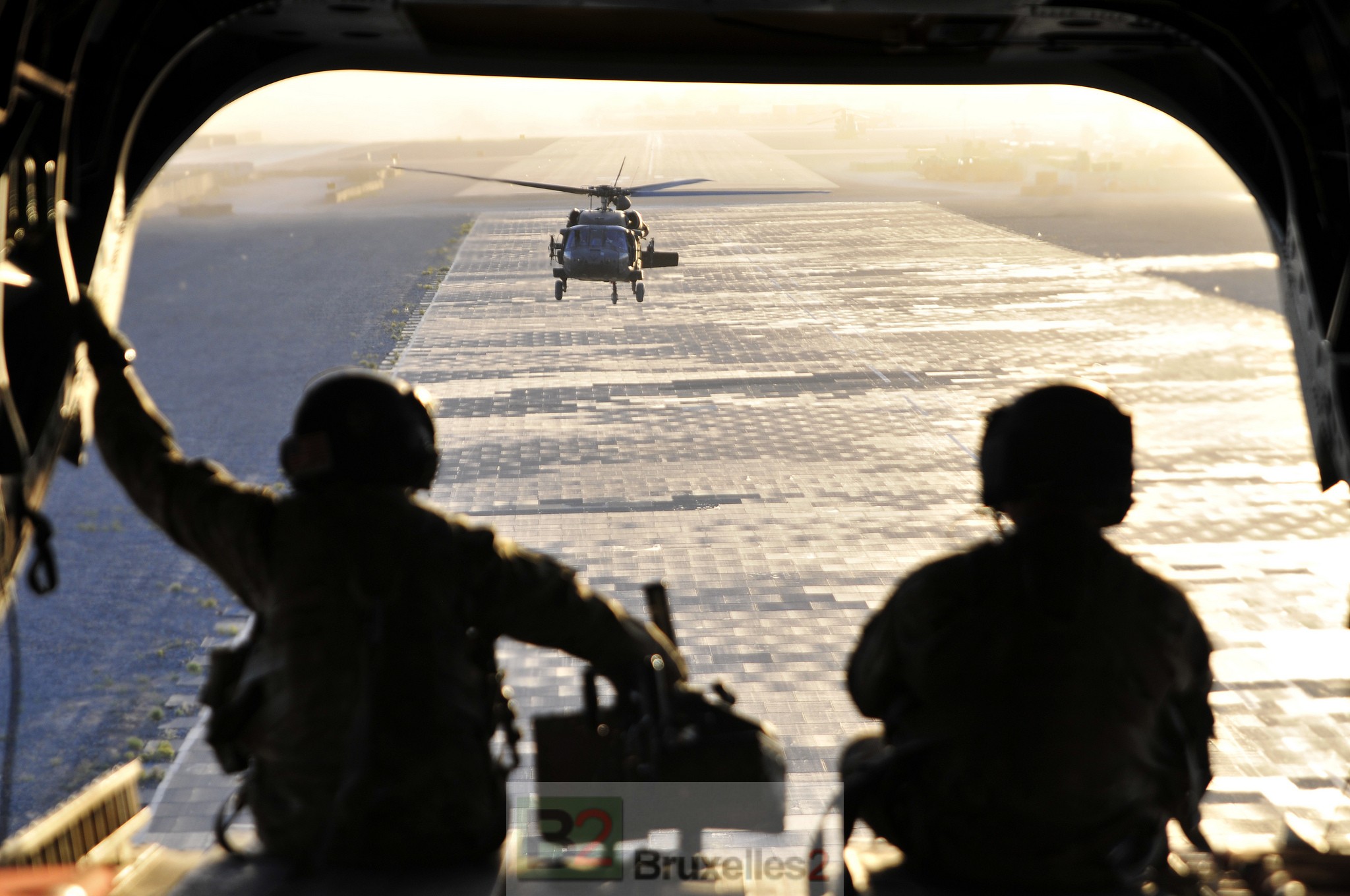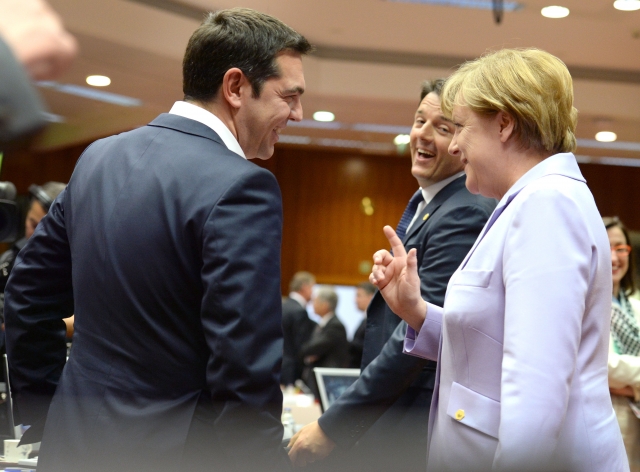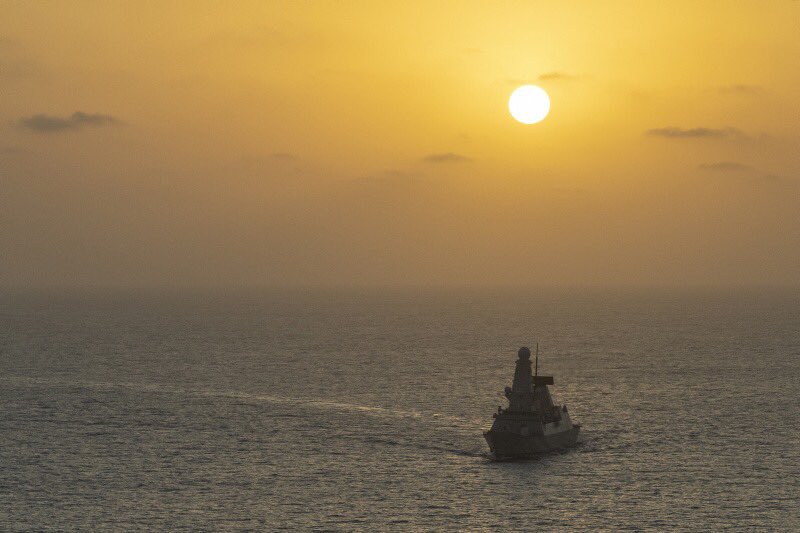The twelve weak points of the CSDP to be resolved urgently

(BRUSSELS2) In just over two months, the Europeans will once again be looking, on 25 and 26 June, at developments in European defence. Without showing off. In a year and a half, since the European summit in December 2013, progress has been, let's be clear, of the order of the microscopic. And to the old difficulties are added today new obstacles which end up forming a skein of speed bumps of the CSDP...
A CSDP to clear up?
The zest of optimism has gone
The following assessment may seem pessimistic. Unfortunately, it is shared and I would even say "moderate". B2 made the rounds of several good connoisseurs of the question. And no one denied this list. On the contrary, each added an element, a detail, a point that I did not suspect. The zest of optimism that the 2013 summit could have aroused - whose ambition was quite limited - has evaporated. This shows how the Europeans are unable to adjust their actions to their ambition and their words. European parliamentarians were not mistaken. And in their latest reports, which B2 has dissected, they do not hesitate to paint an unvarnished portrait of the common security and defense policy (CSDP) and to call for a leap forward. It is not a question of relaunching the CSDP - a word often heard - but of disengaging it. That is to say, to unhook everything that gets stuck so that the engine turns. It is time !
A favorable context
There is no longer any psychological and political blockage, either within the European Commission or on the side of the High Representative. It's a major change. The current High Representative, Federica Mogherini, has never made a secret of her desire, on several occasions, to make European defense and the CSDP a priority and to contribute to its usefulness. She said it and said it again. And there is no reason to doubt his will. The Italian also benefits from a favorable political context at European level. The President of the Commission, Jean-Claude Juncker leaves the field open to her, and is even ready to support her. Ditto for most European Commissioners. With a reservation for the Commissioner in charge of the Internal Market. The Polish Elżbieta Bieńkowska, very close to the President of the European Council, Donald Tusk, seems very "cautious" on these defense issues, and at odds with the involvement of his predecessors Antonio Tajani and Michel Barnier. A certain wait-and-see attitude, not to say a certain Atlanticism, did not allow him to really put forward any notable ideas on the question. On the other hand, in the Council, there is no major opposition - apart from the British, in the electoral campaign. But this is nothing new. Finally, the field of threats has widened so much - from the northeast to the southwest - that no one today claims to be able to resolve crises on their own. And everyone seems open to exploring new solutions. Which changes things considerably.
Necessary concrete actions
But is there something beyond discourse? For the time being, it must be noted — an observation also fairly shared by several diplomats, elected officials, senior civil servants of all persuasions and nationalities — that if the words are up to expectations, the actions of Federica Mogherini are not (yet ) the appointment. Admittedly, there are now possibilities for CSDP action in all the strategies (Sahel, Libya, Neighbourhood, etc.). And the launch of a new European security strategy is scheduled for next year. But this is not enough to make a spring... nor to remedy the significant shortcomings observed today. It is a real concrete roadmap to solve, one by one, the various blocking points which proves necessary, by advancing if necessary innovative solutions to circumvent the obstacles. Action is urgent because the results of recent years are not happy and the threats continue to increase...
Be careful not to disappoint
Federica Mogherini is thus expected. Because it constitutes a last hope to unblock the CSDP, by going off the beaten track. But she must not be left alone on the way. The Member States will also have to put a little willpower into it and abandon certain principles which are more ideological than real. It may be necessary to innovate, to abandon old moons or to conquer new ones. The important thing is not to disappoint! It is a little-known paradox. But just as public opinion is often reserved on European issues, it expects Europe on the CSDP (*).
The twelve weak points of CSDP
1° The economic crisis is weighing
The crisis, which began at the end of the 2010s (more than 5 years in some countries), has shaken the defense efforts of most European countries. And it continues to weigh heavily today in most countries of the European Union without the trend being able to be reversed quickly or profoundly. Some countries (Baltic, Poland, Sweden...) have decided to spend more. But on the one hand, we are starting from quite low (generally 1% of GDP - except for Poland); on the other hand, on a European scale, it is clear that this effort remains minimal and does not compensate for the virtual freeze or the reduction already started in budgets weighing heavily on the European balance. Failing to reinvest in defence, economies of scale could be obtained with (joint) purchases, the use of training structures, etc.
2° The withdrawal into oneself
Instead of producing an effect of reinforced solidarity, and a salutary restoration of order, the economic crisis has rather favored, in most Member States, the temptation to save what can be saved (the salaries of the military for some, equipment for others, etc.) with the means at hand. Joint purchases and research and development have doubled (in volume and percentage) as evidenced by the analysis of the latest figures produced by the European Defense Agency (read on the Club: Defense budgets in Europe in 2013. We are spending less. Do we spend better?). We are thus in the worst of the hypotheses envisaged at the start of the economic crisis: withdrawal into oneself.
3° The lack of will / "fatigue" of the Member States
The lack of appetite of many European states is a real obstacle to CSDP. It manifested itself, in a blatant way, during the generation of forces for the EUFOR RCA operation, which owed its establishment only to the persuasiveness of the French Minister of Defence, Jean-Yves Le Drian, to the efforts of 3-4 countries, mainly from the East... and Georgia. It was repeated again for the establishment of the EUMAM RCA mission which did not reach the 60 personnel required! Greece, Italy, Spain, Portugal are depressed by the budgetary crisis. Belgium, Europhile, is with the subscribers present. In France, eurofatigue is felt even among the most convinced. Eastern countries are obsessed with Russian aggression (although this threat is non-existent according to NATO Secretary General Jens Stoltenberg himself. Read about the Club: More European cooperation (Stoltenberg) Yes, but which one?). As for the United Kingdom, he smiles in his beard, believing that outside NATO, there is no salvation for defence.
4° Structures to restructure
On the European side, the change in the Treaty — and the creation of the European Diplomatic Service (EEAS) — shook up the crisis management structures of the European Union (Europe of Defence) but without giving rise to the necessary reorganization and restructuring required. The internal organization is still modeled on a system invented in the early 2000s, in the aftermath of the Balkan crisis, in a very different institutional context (the CSDP depends essentially on the Council and has to deal with the Commission for certain aspects: budgetary and finance in particular). The three existing mechanisms (General Staff, CMPD, CPCC) not counting the IntCen (and apart from the SEAE, the Military Committee) each have their uses but all face a cruel lack of available human resources. The postures are still too vertical (what is called functioning in a silo) which is detrimental to proper functioning. The last report published... in July 2013 by Lady Ashton recommended certain changes. It has remained as it is ever since. The visibility of the CSDP - which was one of the axes of the summit - remains in its infancy. There is still no device dedicated to communication on the CSDP and identified as such within the European structures. Which is an aberration and even a step back from what existed 10 years ago.
5° Administrative and financial blockages persistent
Today there is a " psycho-rigid application “, according to a formula heard many times from the operational side (military and civilian), of certain financial and budgetary rules by the European Commission. It is first of all the application of the point "abc" regulation before the objective aimed at the political level. Even while exercising her full role as Vice-President, the High Representative has not yet been able to carry enough weight to initiate a paradigm shift within the Commission. The global approach, presented by all as a quality of the European Union, resembles a "band-aid" on a badly cauterized wound. " It's easier for me to get funding from the UN or member states than from the European Union. » several former heads of CSDP missions and operations confided to me.
6° The fratricidal duels around the Rond Point Schuman harmful
These duels do not cause any casualties, rest assured. But they strongly harm European efficiency and they seem totally out of time given the international context. This usually happens at an infra-political level, so without making waves. But in fact, the battles of corridors continue. The Commission defends its power to set standards, the budget and to control expenditure (rightly so!). The Diplomatic Service seeks to preserve its political assets and its young existence (with good reason!). Operational people want more flexible standards to be more efficient (logical!). Member States are willing to act if they are reimbursed for the costs (which seems legitimate). Etc. These positions have their full justification. But, together, they are deadly and paralyze the system in the face of accelerating threats and slow down all decision-making processes. " We get bogged down in picrocholine wars on the scale of the challenges that arise every day. The High Representative will have to, at some point, bang her fist on the table and impose, as Vice-President, innovations and another approach to the Commission "machine".
7° The exploitation of potentialities of the Lisbon Treaty is still very limited
Neither permanent structured cooperation nor enhanced cooperation has been put in place or even considered and prepared. The Start-Up Fund has remained where its designers left it in 2004: an article of the Treaty. The possibility of assigning missions to a group of nations is currently being debated but remains at the concept stage. Etc. We are swimming, in fact, in the midst of a paradox. The CSDP has a maximum of possibilities for action in the treaty that no other sector or competence (economic, social, environmental, etc.) brings together. But none of these are used.
8° The absence of a full-time chef
It might seem obvious. The High Representative of the EU remains responsible for the CSDP, in title. She is also director of the European Defense Agency. But it is an illusion that deceives no one: with the double/triple hat that Federica Mogherini has to assume, not to mention the travels, the delicate old (Iran, Belgrade-Pristina) and new (Palestine-Israel, Ukraine) negotiations in which she wants to get involved, she won't be able to have the physical presence to follow the case closely. She needs a personality (male/female) capable at a high level of continuing this dialogue, clearing up difficulties and obstacles, one by one, or even being able to replace her at short notice in high-level meetings (ministerial, etc.). .).
9° Financial solidarity between European countries remains loose
While the European budget today finances (civilian) missions, (military) operations and missions are still financed according to the principle: who commits pays. It is the principle of double jeopardy" for the Member States: not only do they take a non-negligible risk on a political or even human level, but they must bear all the political consequences. Only a small part - under the Athena mechanism - obeys the solidarity mechanism (between 10 and 15% of the budget). The overhaul of this mechanism has certainly brought some technical innovations. But we are far from the quantitative leap desired by the Heads of State and Government in December 2013. We must therefore invent something else.
10° The strategic debate is in its infancy
Despite a very marked increase in threats, the very rapid changes in the situation, states which are inflamed one after the other, from Syria to Nigeria, the threat of a new terrorism both internal and external, re-exportable — diplomats were able to speak of a Schengen of terrorism – the Europeans seem to have trouble synchronizing a notion of common action, speed and still register their action in a slow time. It will take more than a year to build a new European security strategy (almost 3 years since the December 2013 summit), setting up an action plan for the Sahel took more than a year. The mere mention of the need to put in place more offensive action against traffickers of human beings took more than 2 years to be formulated. And yet it took two shipwrecks and more than 1000 deaths at sea to react (read: Get your head out of the sand! et about the club: The Commission proposes a 10-point plan to deal with the migration shock in the Mediterranean).
11° What to do with the Russian neighbor
The measure of Russia's strategic turn has not yet been taken. Where NATO quickly rediscovered its Cold War reflexes, the European Union seems to be struggling to draw the consequences, in terms of a new security organisation, of what could constitute a new strategic upheaval on the European continent — the second in 20 years after the fall of the Berlin Wall and the dismemberment of the USSR in the early 1990s. A turning point which, however, should contribute to legitimizing, even more than ever, an autonomous capacity of the European Union to intervene in security or peacekeeping missions, which will be quite distinct from NATO. With political difficulty. On the one hand, Russia is not " no longer a partner », as F. Mogherini has indicated on several occasions (cf. Ukraine and Crimea); on the other hand, Europe expects a certain amount of cooperation from Russia (cf. Syria, Iran) or a certain international "understanding" (cf. Libya, Yemen, Iraq).
12° EU-NATO cooperation to be clarified
Everybody talks about it. Everyone gargles. In fact, EU-NATO cooperation remains largely blocked by a major political problem: the question of Cyprus and Turkey. It is time for the two organizations (EU, NATO) to get more involved in this fundamental and unique issue. This is the last "frozen" conflict on the territory of the European Union (after the cessation of the Northern Irish and Basque "conflicts"). A territory of a European state is occupied, illegally (if we refer to the declarations of the UN), by a power member of NATO. Without being able to be compared, the situation presents certain analogies with the Crimea which arouses regular condemnations (and rightly so). No sanction has ever been pronounced against Turkey. And the European effort to solve this problem is weak, compared to the Franco-German effort against Ukraine, European in Kosovo, German-British in Bosnia-Herzegovina, etc.
Europe can no longer wait and remain passive like a cow grazing in its meadow watching the passing trains and waiting to be taken to the slaughterhouse. We must wake up, and quickly! We must tackle the most pressing problems head-on or find innovative, new solutions to circumvent the obstacles.
(Nicolas Gros-Verheyde)
(*) The latest Eurobarometer survey conducted by the European Commission in autumn 2014 shows that 3 out of 4 Europeans (76%) are in favor of developing a common security and defense policy. They are a little more reserved on a common foreign policy (66%), very mixed on the Euro (only 56%) and hostile to enlargement (only 39% in favor of further enlargement).
A suivre (just to keep morale up 🙂
- Need some housekeeping to do in CSDP missions and operations?
- Are our very dear battlegroups unusable?
To (re)read also: some thoughts on the CSDP already published
- For a European security or crisis management fund? (April 2013)
- Trigger the solidarity clause (October 2013)
- Don't we need a European FMS? (March 2013)
- A military HQ on the cheap, it's possible (November 2013)
- A new division of labor in Europe? (December 2013)
- Europeanized French bases in Africa? (April 2013)
- Is there a need for a military cabinet to the High Representative/VP of the Commission? (January 2013)
- The ability to enter first... (France's mission?) (January 2013)
- High representative: a design flaw to be corrected (December 2011)
Threats: security, economy, challenges...
- In the neighborhood of Europe, dead calm?
- Europe in the grip of an economic Waterloo?
- The 8 major challenges of the next High Representative (July 2014)
On European defense and foreign policy
- A Europe of defence, despite everything (December 2012)
- Power Europe: a conceptual error?
- A new division of labor in Europe?
- The European diplomatic service, a baby just waiting to grow


